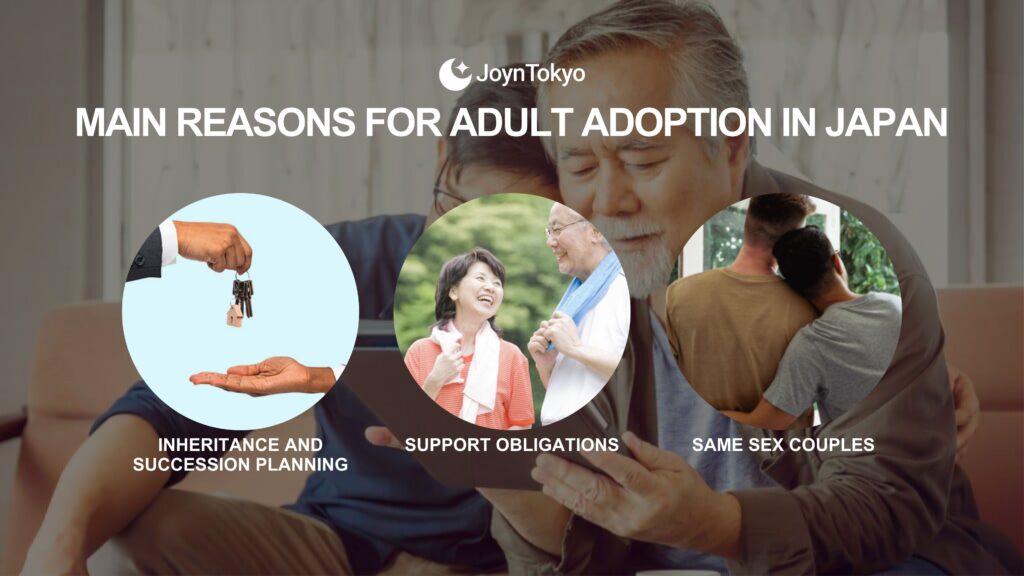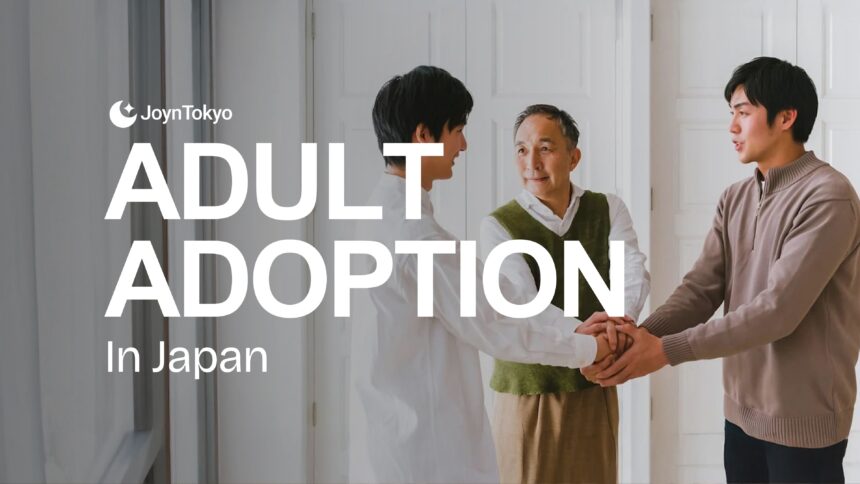Adult Adoption in Japan generally refers to ordinary adoption under the Civil Code where both parties are adults. In law, an adoptive parent must have reached the age of majority, which Japan lowered from 20 to 18 on April 1, 2022, and may adopt another person as their child; the adoption is made effective by filing a notification that is accepted under the Family Register Act. Once accepted, the adopted person becomes a legal child in wedlock of the adoptive parent and is entered in the koseki, Japan’s family registry. These features make adult adoption a practical legal tool for forming kinship, for succession planning, and for unifying a household in the family register.
Reasons for Adult Adoption in Japan

Adult adoption in Japan has long been used for practical, cultural, and legal purposes. Unlike in many countries where adoption is primarily for minors, the Japanese legal system has developed adult adoption as a flexible tool to secure family succession, maintain household continuity, and create legally recognized kinship ties.
Inheritance and Succession Planning

One of the most common reasons is inheritance and succession planning. Under the Civil Code, adopted children have the same inheritance rights as biological children, which makes adult adoption a way to secure heirs when there are no biological descendants. Families, especially those with traditional businesses or estates, often adopt adult heirs to ensure that property and leadership pass smoothly. Research on Japanese family firms confirms that adopting heirs has been a widespread strategy for maintaining long-term continuity in family enterprises.
Support Obligations

Another motivation is support obligations and caregiving. Adoption creates reciprocal duties of support between adoptive parents and children under the Civil Code. Older adults sometimes adopt a trusted younger person to ensure that they will be cared for, while adoptees benefit from inheritance and legal recognition of their caregiving role.
Same Sex Couples

Finally, in recent years, same sex couples have turned to adult adoption as a way to secure legal family recognition. Since Japan does not yet recognize same sex marriage at the national level, adoption can provide inheritance rights, hospital visitation recognition, and inclusion in the family register, even though it is not equivalent to marriage and carries legal limitations .
Together, these reasons show why adult adoption remains a distinctive and widely used legal practice in Japan, blending historical continuity with modern adaptations to changing social needs.
Requirements for Adult Adoption in Japan
Adult adoption in Japan is governed by the Civil Code and the Family Register Act, which set out the legal conditions and procedures for forming an adoptive relationship between two adults. While the process is more straightforward than adoption involving minors, it still carries specific rules about age, consent, and documentation. These requirements ensure that the adoption is entered into freely, with full legal validity, and properly recorded in Japan’s official family registry system.
Age Requirements
Under Japan’s Civil Code, the adoptive parent must have reached the age of majority, which was lowered from 20 to 18 as of April 1, 2022. An adoptive parent cannot adopt an ascendant (such as a parent or grandparent) or anyone older than themselves.
Consent Requirements
If the adoptive parent is married, their spouse must consent to the adoption. Similarly, if the person being adopted is married, that person’s spouse must also give consent. These rules ensure that adoption decisions reflect the shared will of both partners within a marriage.
Family Court Involvement
Ordinary adoption involving minors requires permission from the family court, except when the adoptee is a direct descendant of the adoptive parent or their spouse. However, adult adoption does not require family court approval. It becomes effective upon submission and acceptance of the adoption notification under the Family Register Act.
Notification Procedure
The adoption is formalized through a written notification (届出 / todokede). The document must be signed by both the adoptive parent and the adoptee, as well as by two adult witnesses. Once the notification is accepted, the adoption takes legal effect and the adoptee is entered into the koseki, Japan’s family registry.
| Requirement / Rule | Details |
|---|---|
| Age of adoptive parent | Must have reached the age of majority (18 as of April 1, 2022). Cannot adopt an ascendant or someone older than themselves. |
| Consent when adoptive parent is married | Spouse’s consent is required for adoption. |
| Consent when adoptee is married | Adoptee’s spouse must also consent. |
| Adult adoption (18+) | No family court permission required. Adoption completed by filing under the Family Register Act. |
| Notification procedure | Adoption notification must include signatures of both parties and two adult witnesses. |








